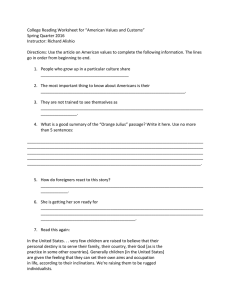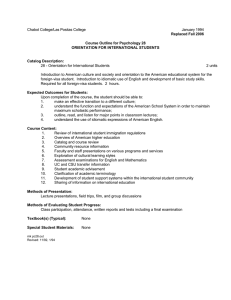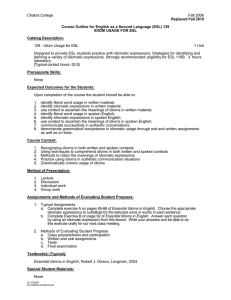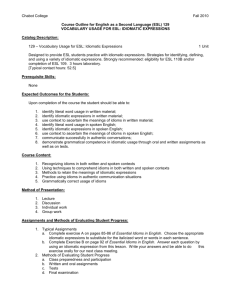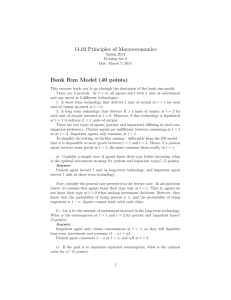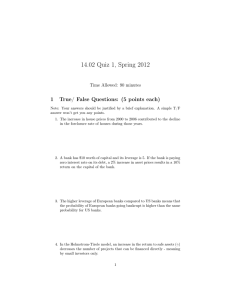IDIOMATIC USE OF PREPOSITIONS
advertisement
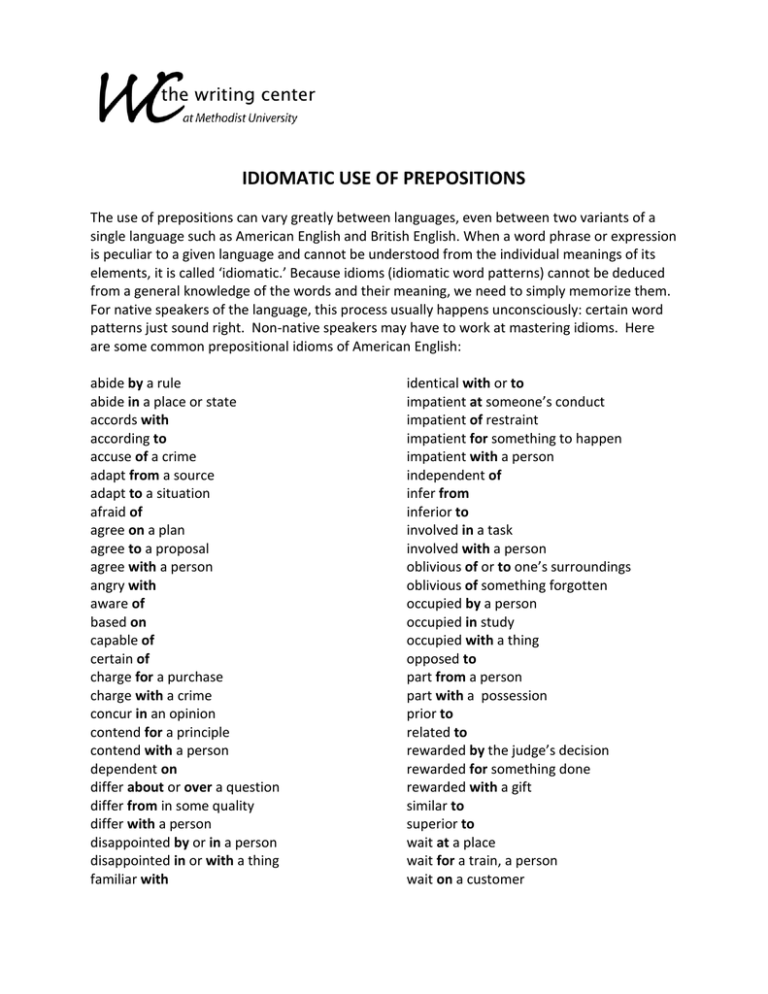
IDIOMATIC USE OF PREPOSITIONS The use of prepositions can vary greatly between languages, even between two variants of a single language such as American English and British English. When a word phrase or expression is peculiar to a given language and cannot be understood from the individual meanings of its elements, it is called ‘idiomatic.’ Because idioms (idiomatic word patterns) cannot be deduced from a general knowledge of the words and their meaning, we need to simply memorize them. For native speakers of the language, this process usually happens unconsciously: certain word patterns just sound right. Non-native speakers may have to work at mastering idioms. Here are some common prepositional idioms of American English: abide by a rule abide in a place or state accords with according to accuse of a crime adapt from a source adapt to a situation afraid of agree on a plan agree to a proposal agree with a person angry with aware of based on capable of certain of charge for a purchase charge with a crime concur in an opinion contend for a principle contend with a person dependent on differ about or over a question differ from in some quality differ with a person disappointed by or in a person disappointed in or with a thing familiar with identical with or to impatient at someone’s conduct impatient of restraint impatient for something to happen impatient with a person independent of infer from inferior to involved in a task involved with a person oblivious of or to one’s surroundings oblivious of something forgotten occupied by a person occupied in study occupied with a thing opposed to part from a person part with a possession prior to related to rewarded by the judge’s decision rewarded for something done rewarded with a gift similar to superior to wait at a place wait for a train, a person wait on a customer
